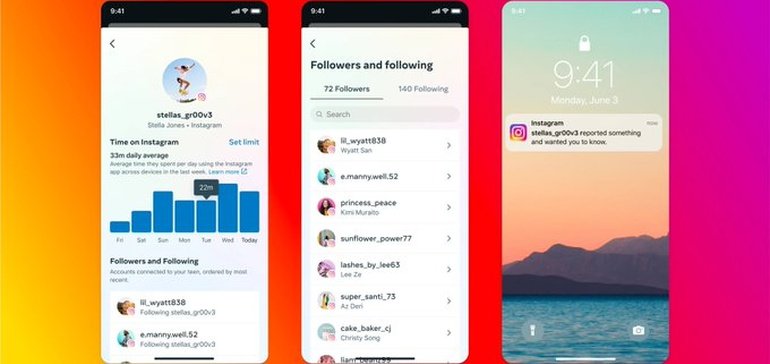SOCIAL
Meta Adds New Parental Control Elements for Instagram and VR

Meta’s rolling out a new set of parental supervision and control tools for both Instagram and Quest VR, which address key elements of concern with usage and exposure among younger users.
As you can see here, the new Parental Control center on IG essentially amalgamates the app’s existing parental control tools into a more centralized dashboard, providing more ways to manage your child’s usage of the app.
As explained by Instagram chief Adam Mosseri:
“Parents and guardians know what’s best for their teens, and in December I committed to developing new supervision tools that allow them to be more involved in their teens’ experiences. Today, we’re making these supervision tools available in our new Family Center. We worked closely with experts, parents, guardians and teens to develop Family Center, a new place for parents to oversee their teens’ accounts within Meta technologies, set up and use supervision tools, and access resources on how to communicate with their teens about internet use.”
The only functional addition here is the additional resources for parents, with Instagram initially adding parental control options back in December.
But the broader view for the Family Center is that it will eventually become a hub from which parents can oversee all aspects of their children’s usage of Meta’s apps, including VR, which has also been added as a component in this initial release.
As you can see from the above screens, on Instagram, parents will be able to use the Family Center to view how much time their kids are spending in the app, and set time limits, while they’ll also be able to get notifications when their child has reported someone, and view and receive updates on what accounts their kids follow (as well as the accounts that follow their teens).
Instagram says that over the next few months, it will add more features, including letting parents set the hours during which their teen can use Instagram and the ability for more than one parent to supervise a child’s account.
In VR, Meta is also adding a range of new control and supervision tools, starting with the ability for parents to link to their teen’s account. Parents will then be able to approve app downloads by their child, block specific apps, view headset screen time, monitor their Oculus friends and block Link and Air Link, which will prevent their child from accessing content from their PC on their Quest headset.

Meta’s also expanding the capacity to use of unlock patterns to limit access to certain VR apps and features.
“Today, you can create an unlock pattern as an extra layer of security to prevent others from accessing your device or saved passwords. Beginning in April, we’ll introduce the ability for people to use the unlock pattern to lock specific apps directly from VR. Once a given app is locked, you’ll need to draw your unlock pattern to unlock and launch it. This will allow parents to prevent teens 13+ from accessing games and experiences they feel aren’t age-appropriate by using an unlock pattern to lock access to those apps.”
It’s not a foolproof system, and the increasingly immersive nature of VR threatens to be overwhelming for some users. But it’s a start, and an important step for Meta as it looks to usher in the next stage of digital connection.
This is a key area of concern in the evolving metaverse shift – because in Meta’s view, our online worlds are only going to become more immersive, which, as noted, also ups the risk. Already there have been various reports of sexual harassment and abuse within Meta’s VR worlds, and that type of exposure could be especially harmful for youngsters, which is something that absolutely needs to be factored into metaverse development.
As such, this is a critical focus, and it’s good to see Meta looking to make a more concerted effort here.
The new Instagram and VR supervision tools are available in the US today, with plans to roll out globally in the coming months.



















You must be logged in to post a comment Login